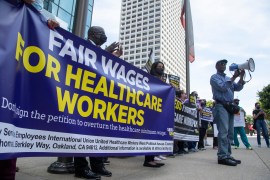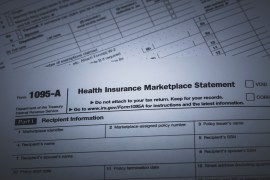As congressional Democrats prepare to deliver on President Barack Obama’s goal of “expanding coverage to all Americans,”(.pdf) an important question remains unanswered: is universal coverage worth the money?
Extending health insurance coverage to the estimated 46 million (.pdf) Americans without it could easily cost $2 trillion over the next 10 years. If the underlying goal is to make people healthier, are there other ways to spend that $2 trillion that would help Americans, including the uninsured, live even longer, healthier lives? There may well be, and one can hardly imagine a more fit topic for comparative-effectiveness research.
Health reformers love a good we-all-know statement, like, “We all know that health insurance is a good investment,” or, “We all know that investing in preventive care saves money.”
Health economists, on the other hand, enjoy embarrassing the we-all-know-it-alls. For example, a recent New England Journal of Medicine article concluded, “Although some preventive measures do save money, the vast majority reviewed in the health economics literature do not.”
Likewise, economists Helen Levy of the University of Michigan and David Meltzer of the University of Chicago have thrown cold water on the conventional wisdom that expanding health insurance is a good investment.
In 2004, Levy and Meltzer reviewed the literature for the Urban Institute and concluded: “There is no evidence at this time that money aimed at improving health would be better spent on expanding insurance coverage than onother possibilities,” such as programs that fund inner-city clinics, screen for discrete diseases such as hypertension, or promote better nutrition.
Writing in the Annual Review of Public Health in 2008, Levy and Meltzer reaffirmed that conclusion: “The central question of how health insurance affects health, for whom it matters, and how much, remains largely unanswered at the level of detail needed to inform policy decisions.”
“Understanding the magnitude of health benefits associated with insurance is not just an academic exercise,” they explain, “it is crucial to ensuring that the benefits of a given amount of public spending on health are maximized.”
Not only is there “no evidence” that universal coverage is the most cost-effective use of our $2 trillion, the benefits may not exceed the costs at all.
In a 2008 article for the Journal of Public Economics, Amy Finkelstein of the Massachusetts Institute of Technology and Robin McKnight of Wellesley College reported that even though Medicare achieved universal coverage for the elderly, it had no impact on elderly mortality rates in its first 10 years. Medicare may (or may not) have improved enrollees’ health in other ways. Yet Finkelstein’s and McKnight’s results leave open the question of whether those and any additional benefits were worth Medicare’s substantial cost.
For decades, health reformers have been beating the drums for “evidence-based medicine,” all the while ignoring the lack of evidence behind the push for universal coverage. “Science for thee,” we lecture physicians, “but not for me.”
It’s time to start practicing evidence-based health policy. Here’s how.
Before Congress spends $2 trillion on reforms of unknown value, it should direct the $1.1 billion it has allocated for “comparative effectiveness” research toward experiments that will tell us whether universal coverage or some other strategy would deliver the most health for the money.
The idea has precedent. In the 1970s, at a time when many reformers were demanding to make health care “free” for all, Congress funded a massive social experiment to test the idea. The RAND Health Insurance Experiment startled reformers by showing that “free” care cost far more than mere catastrophic health insurance, yet offered little or no additional improvements in health.
Levy and Meltzer note that “definitive answers” will come only by “investing in social experiments designed to answer specific questions about the value of improved health insurance coverage or other policies to improve health.” George Mason University economist Robin Hanson has even started a petition to demand a new RAND-like experiment, which he estimates would cost a mere $500 million over 10 years.
I oppose spending taxpayer dollars on such research, for reasons both principled and practical. But if Congress is going to spend the money anyway, the least it could do is let us know whether universal coverage is a comparatively effective use of our $2 trillion.
Michael F. Cannon is director of health policy studies at the Cato Institute and coauthor of Healthy Competition: What’s Holding Back Care and How to Free It.






